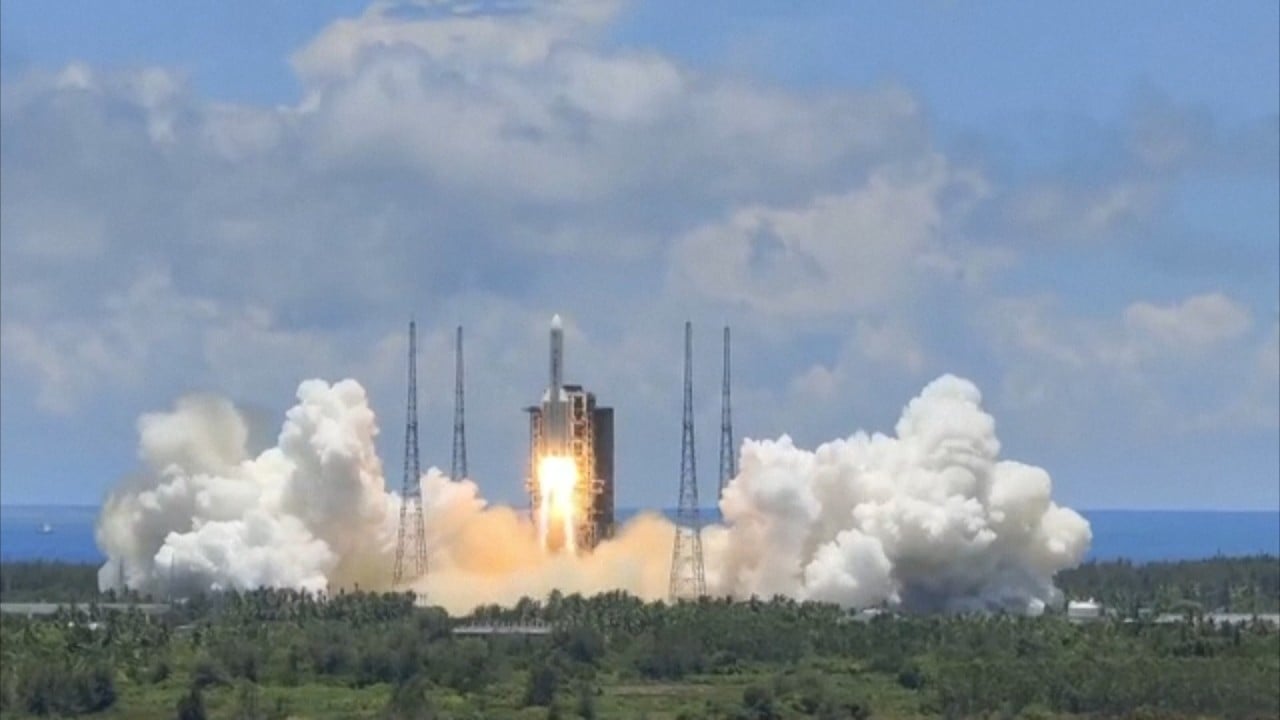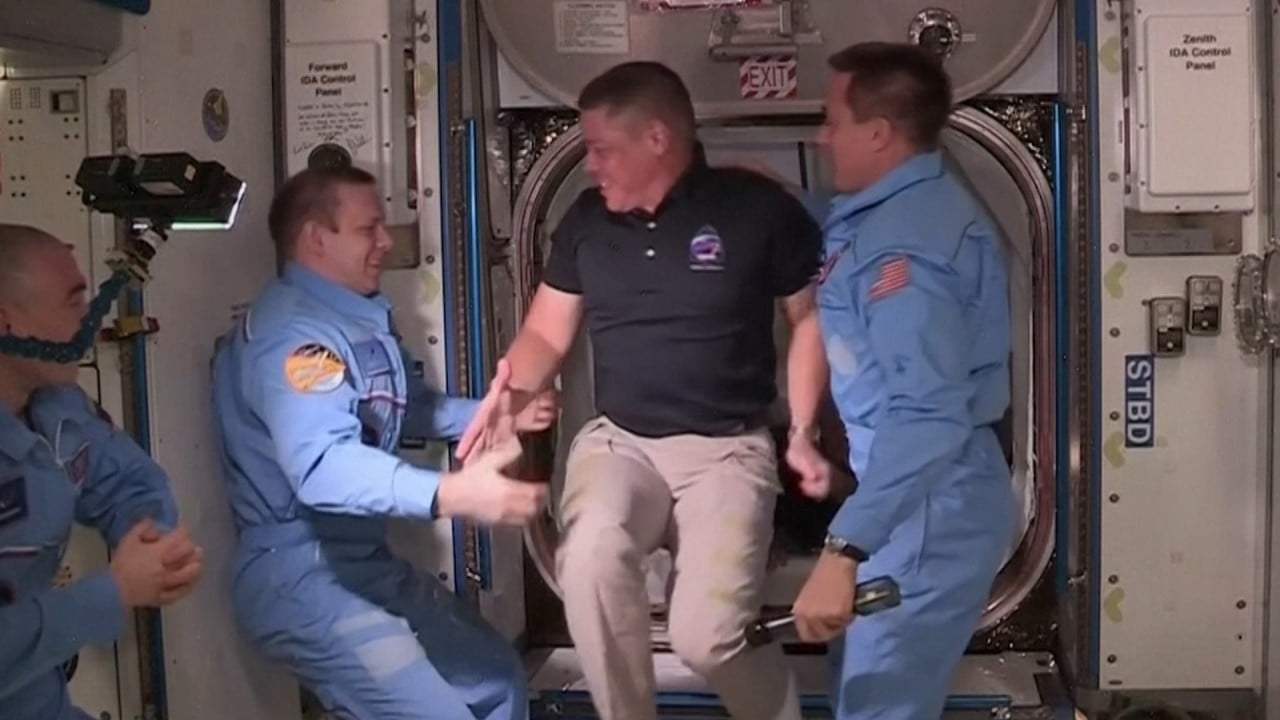
China’s earthly concerns take priority over ‘space race’ with US
- Any such race requires speed and competition, neither of which appear to be present in the US or Chinese space programmes of late
- If China ever makes significant progress towards commercialising space resources, the US could then change and start competing
Who will win this space race? Can the US beat China like it once did the Soviet Union? Sorry to disappoint, but there is no space race between the US and China.
Any such race requires speed and competition, neither of which have been part of the US or Chinese space programmes so far. China is not engaging in a race as the Communist Party leadership’s top priority is avoiding the disintegration that ended the Soviet Union.

01:48
China launches mission to Mars with lift-off of home-grown Tianwen-1 spacecraft
Its leaders are understandably sensitive to the consequences of pointless competition for the sake of prestige. The Communist Party prioritises sustainability. There is no need to put beating the US in space above improving living conditions and eradicating poverty.
Each US president has typically directed changes in space priorities. The latest under President Donald Trump is the Artemis programme, which aims to land the first female astronaut on the moon by 2024.

02:15
Astronauts arrive at International Space Station on historic mission using private SpaceX rocket
Those milestones include successfully taking full control of a human orbital mission, extravehicular missions and craft rendezvous in orbit and docking Chinese craft on the International Space Station. They require a space agency to develop technological and operational experience performing these difficult tasks in space.

01:23
China launches last piece of BeiDou Navigation Satellite system into orbit
None of this is to minimise China’s space achievements. It is arguably the world’s No 2 space power but still not ready to overtake the US any time soon. There is no evidence the Communist Party leadership has a concrete plan to colonise space, and that will remain the case until the costs are clearer and the practical benefits more apparent.
If China ever makes significant progress towards commercialising space resources, the US could change and start competing. It would be for resources and wealth rather than prestige. That is how a new space race would really take off, not who lands on Mars first.
Chee Yik-wai is a Malaysia-based intercultural specialist and the co-founder of Crowdsukan focusing on sport diplomacy for peace and development

